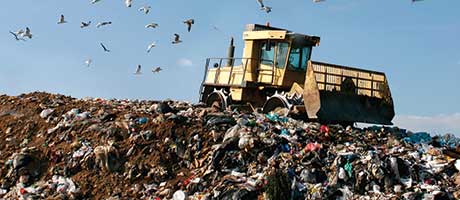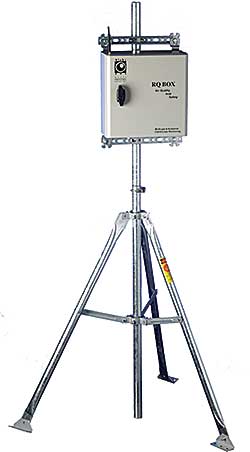AN ‘electronic nose’ could give advance warning to landfill operators of unacceptable odours becoming a problem.
Now available in the UK, the technology can also be used to help control smells in other areas including sewage treatment, composting and food production. By sensing odours and raising an alert before they cause human discomfort, the equipment can trigger activity to reduce the nuisance at an early stage.

Distributed by monitoring specialist Enviro Technology, the RQ Box electronic nose was developed by French company Alpha MOS, a world leader in ‘human sense digitisation’ systems. It mimics human olfaction to detect levels of odour and pollutant gases in the air.
It has traditionally been difficult to ‘measure’ smells but with the RQ Box, it is possible to create an objective profile of odour levels. This enables better policing and management of pollution.
Designed to monitor one or more sites, the technology generates real-time information and provides 24/7 measurement in ‘odour units’ and of pollutant gases in ppm. The information can be presented via 3D maps of dispersion plumes showing concentration levels. Analysis of the data can form a vital part of strategies to combat odour pollution.

Landfill sites can generate unacceptable levels of odour at periodic intervals because of meteorological conditions. Using the RQ Box helps the pinpoint conditions that lead to these problems and prompt remedial action such as a spray system to neutralise the smell.
Enviro Technology explained: “The benefits of enhancing measurement and therefore management of odour pollution are manifold. Building a better understanding of the factors that lead to odour problems enables processes to be optimised to reduce the risk of nuisance odours. This facilitates intelligence-led decision making and a ‘continuous improvement’ approach to odour management.”
Duncan Mounsor, sales and marketing director, added: “For some industries, odours are a normal by-product of everyday activity. But there is a world of difference between an ‘acceptable’ level of odour and what is clearly an unacceptable nuisance. It is often the case that responsible businesses want to take more control of the odours they produce and build better relationships with their neighbouring residents. Embracing this technology is a good step towards achieving both of these goals.”
Costly business
Penalties for odour pollution can be hefty. Last year a composting firm was ordered to pay £33,000 after complaints were made to the Environment Agency.





